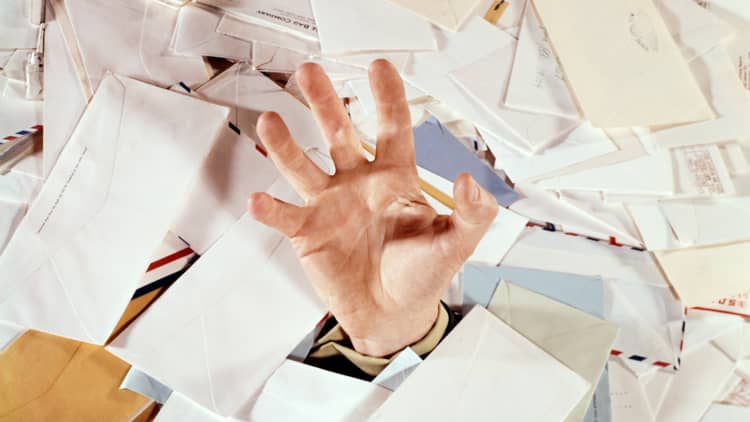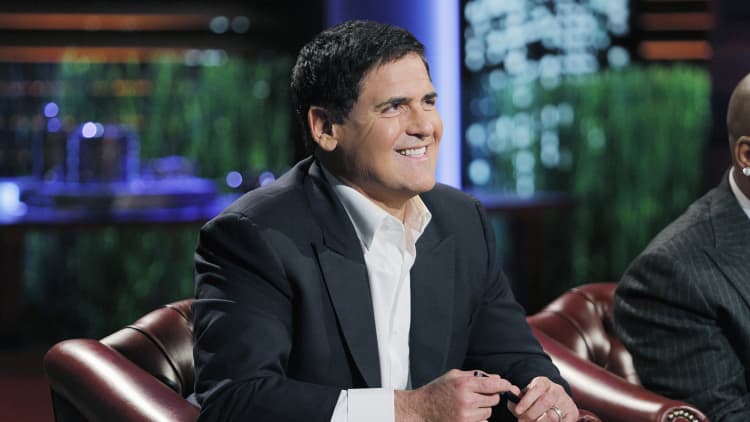It never hurts to have a little more cash on your hands, whether you choose to put it toward buying a home, paying down debt or splurging on over-the-top holiday presents.
Want to ramp up your savings even more in 2018? CNBC Make It rounded up five ways to boost your savings and put more cash back in your pocket — or your retirement fund.
Challenge yourself to zero-spend days
David of Zero Day Finance, who goes by only his first name online, uses a simple strategy to minimize his spending. The 26-year-old New Yorker commits to at least one "zero spend" day a week, during which he actively avoids buying anything, including a morning coffee or an item from the drug store.
David tracks his progress with the challenge on his blog, where he "collects" zero spend days and pushes himself to fit as many of them as possible into a week. By gamifying his spending, he stays motivated to save.
Since starting the challenge six months ago, David has saved $18,432, cutting his monthly spending from around $4,700 to $3,170. That's a 33 percent decrease and saves him enough to max out his 401(k).

Cut out convenience
You're not going to go broke buying coffee every morning. But if you're hitting Starbucks, taking cabs and ordering takeout on a regular basis, it can start to make a dent in your budget. As financial expert and former CNBC television host Suze Orman says of costs like daily lattes and avocado toast: "It adds up big time."
"Stop leasing cars, stop eating out, stop doing the things that's wasting your money and makes your life easier, because in the long run it's going to make it harder," Orman told CNBC's "Power Lunch" in June.
Take inventory of your spending habits and decide what's worth the price of convenience and where you can make some cuts. Your morning latte might be worth giving up your Uber habit.
Pause before checkout
Cherie and Brian Lowe paid off more than $127,000 in debt in four years by working to both increase their income and pare down their expenses. While many larger factors contributed to their success, including building an emergency fund and rejiggering their tax withholdings, Cherie's No. 1 money-saving trick is simple.
"Every time you check out at the grocery store, you need to look in your cart and find three to five items that you don't need," she tells CNBC Make It. "You will save $5 to $10 every time you shop without cutting a single coupon."
The tactic, which could apply to online purchases as easily as in-person ones, works because it puts a barrier between placing items in your cart and actually paying for them. That shaves down your bills.

Track your spending
If you don't know where your money is going, it's hard to see where you can spend less. Tracking your expenses lays everything bare: You know how much you spend on necessities, such as groceries, or non-essentials, like nights out.
Take it from Steve and Courtney Adcock, who set aside up to 70 percent of their combined income to retire in their 30s. If you want to bank half your income or more, the Adcocks recommend recording your purchases.
"We know exactly what we bring in and exactly what we spend — and on what," says Adcock. "Knowing where our money goes is critical to maximizing our savings and pinpointing where we could probably cut back."
They prefer using an Excel spreadsheet, but sites like Personal Capital, Mint and You Need a Budget will keep track of your purchases for you.
Make a list
Don't go shopping blind. Believe me, I've been there: Cruising down the aisles of Target, it's easy to throw in a bottle of shampoo here (I'll use it eventually) or a pack of cute stationery there (It's only $4!), but it all adds up. To combat this, I employ a simple trick: I make a list of exactly what I need before entering any store.
Prior to grocery shopping, I develop a meal plan and list out every ingredient I need. The same goes for CVS runs.
Focusing on my list puts me on a mission. It makes me want to grab only what I need so I can check everything off, rather than leisurely perusing every aisle, casually tossing items in my cart as I go.
Don't miss:
- One simple question will tell you if you're actually wealthy
- Suze Orman: Most people miss out on a simple way to save up to $100,000 on a home
- Here's how much money you need to start investing, according to self-made millionaire Tony Robbins
Like this story? Like CNBC Make It on Facebook!




